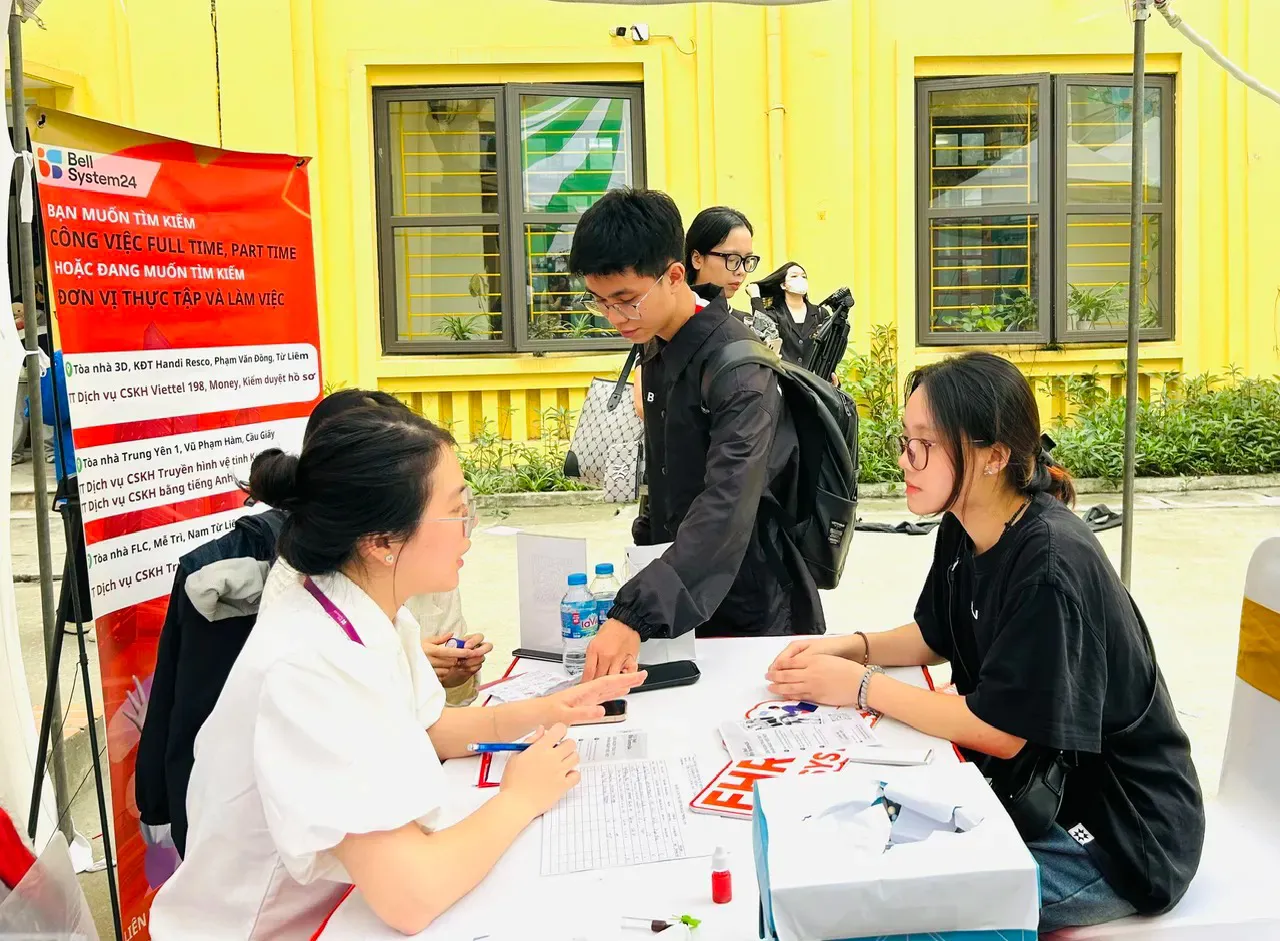Hanoi creates over 54,000 jobs in Q1
Hanoi’s labor market posted solid gains in Q1 2025 driven by credit programs and job exchanges across the city.
THE HANOI TIMES — Hanoi found jobs for more than 54,100 people in the first quarter of this year, up 10.1% increase year-on-year and meeting 32% of the full year's target, according to the Hanoi Department of Home Affairs.

Young job seekers being interviewed at a job fair in Hanoi. Photo: Thuy Truc/The Hanoi Times
Jobs were offered through multiple channels, including social loan programs supporting the employment of 20,100 people and job exchanges involving 1,665 enterprises and 1,900 job seekers while about 31,100 jobs were created through placement agencies and support mechanisms.
Labor exports also gained momentum, with 927 workers sent to Japan, Taiwan (China), and South Korea in the first three months of the year.
In addition to job creation, the city has strengthened unemployment protection. Between January and March, approximately 11,200 beneficiaries were paid a total of VND438.4 billion (US$17 million), down 20% and 2.7% year-on-year, respectively.
Hanoi also provided career counseling for over 9,000 people and vocational training support for 240 workers.
Strengthening labor market development
To create 169,000 new jobs in 2025, the city will organize regular job exchanges at its two main employment centers and satellite platforms throughout the city in addition to diversifying job transactions, strengthening labor market forecasts and improving employment service networks.
Hanoi will also focus on building a comprehensive labor market database, improving short- and long-term human resource outlook, and expanding the labor market information network to the grassroots.
It will expand lending programs through the Vietnam Bank for Social Policies to support low-income individuals and social assistance recipients.
In addition, the city aims to strengthen overseas employment programs, assist labor export enterprises in recruitment, and assess the reintegration needs of returning workers to match them with suitable domestic job opportunities.
At the same time, the city intensifies legal education on labor rights, occupational safety, and enforcement of violations while maintaining training high-quality human resources to meet the city's socio-economic development.











